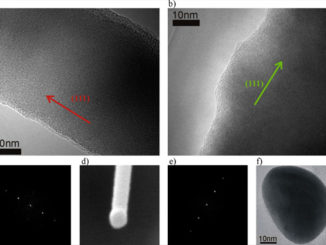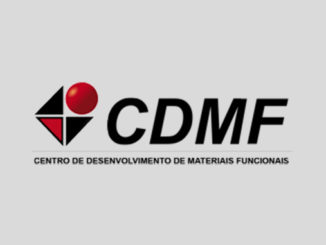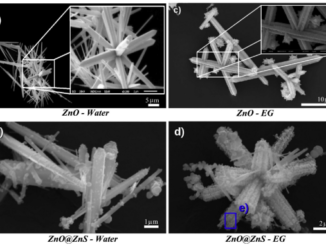
Comparative study of bone tissue accelerated regeneration by latex membranes from Hevea brasiliensis and Hancornia speciosa
Abstract: Bone loss is a common problem after accidental traumas, cancers, congenital defects, and surgical procedures. The techniques normally used in large bone restoration involve complex and invasive procedures such as grafting. Thus, it is of interest to develop alternatives such as bioactive materials to induce accelerated bone regeneration. Natural rubber (NR) membranes are potential candidates due to their characteristics such as biocompatibility, angiogenic potential, flexibility, mechanical stability, surface porosity, and permeability. The present study aims at assessing the osteogenic potential ofNR membranes of clones of high bioactivity of Hevea brasiliensis (RRIM 600 and IAN 873) and of Hancornia speciosa, as well as Physicochemical characterization at theNRmembranes by scanning electron microscopy, Fourier transform infrared spectroscopy, and tensile tests. Critical-size bone defects were surgically made in adult male rabbit calvarium. Afibrin sealant (FS) was used to fix the membranes as a replacement for cyanoacrylate. Wecompared the respective osteogenic potentials of the tested membranes against a control group in healthy animals. The new bone formed was characterized using radiography, x-ray tomography, and histological and morphometric studies. Our results show that both membranes have great potential for regenerating bone tissue, with higher bioactivity compared to the gold standard (PTFE), which was used as positive control. In bothNR membranes the stress-strain profile shows low stress at small strain, characteristic of elastomer with a low degree of reticulation, followed by an increase in the stress at high deformation and two main differences between both NRL biomembranes, related to its composition. The FS acted satisfactorily in the tests, being highly recommended as a substitute for cyanoacrylate in this type of application.
Author(s): Floriano, JF; Neto, FC; da Mota, LSLS; Furtado, EL; Ferreira, RS; Barraviera, B; Goncalves, PJ; de Almeida, LM; Borges, FA; Herculano, RD
BIOMEDICAL PHYSICS & ENGINEERING EXPRESS
Volume: 2 Published: AUG 2016
DOI: 10.1088/2057-1976/2/4/045007




